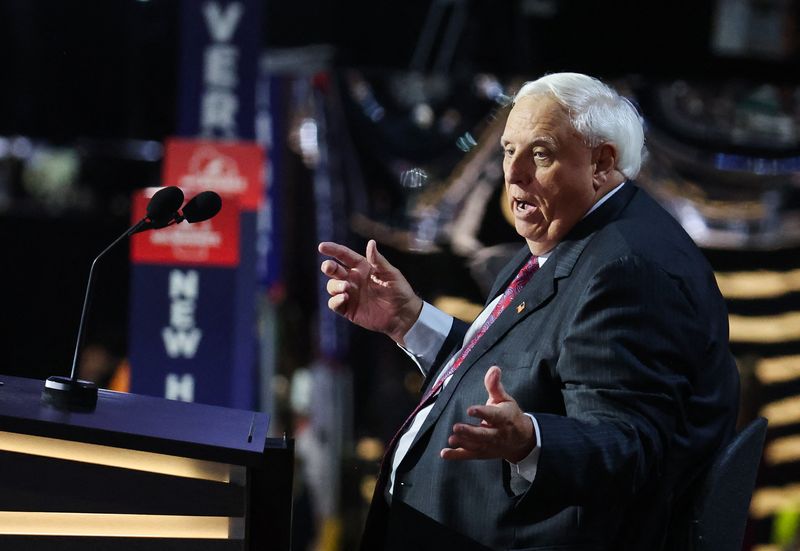West Virginia Governor Jim Justice has achieved a significant electoral victory by winning a seat in the U.S. Senate, marking a pivotal moment for the Republican Party in their efforts to regain control of the Senate. Edison Research projected his victory over Democrat Glenn Elliott, the mayor of Wheeling, solidifying Justice’s position as an influential figure in politics and further emphasizing the shifting dynamics in the state. Justice’s election is particularly noteworthy as it will see him succeed Joe Manchin, a long-serving senator and former Democratic governor noted for his centrist approach and ability to navigate the complexities of party politics and influence policy agendas under both Presidents Joe Biden and Barack Obama.
The shift in political allegiance in West Virginia is emblematic of broader national trends, with Justice now being the first Republican to occupy this Senate seat since 1959. This change also aligns with Justice’s departure from the Democratic Party in 2017, highlighting the fluidity of party identification in contemporary American politics. His victory is crucial for the Republican Party, which seeks to flip at least two seats to establish a majority in the Senate, currently held by Democrats with a narrow 51-49 lead. The outcome reflects a growing trend of Republican strength in traditionally Democratic strongholds, particularly in the Appalachian region.
Justice’s campaign has been characterized by a strong alignment with former President Donald Trump, whom he has openly praised as a “close friend.” His rhetoric indicates a commitment to conservative policies aligned with Trump’s vision, emphasizing the potential consequences for the nation if Trump is not reelected, which he described as the country becoming “totally unhinged.” This connection to Trump resonates with the Republican base and may have significantly influenced his electoral success in a state where Trump maintains considerable support.
Additionally, Justice’s long-standing tenure as governor has elevated his profile and popularity among West Virginians, allowing him to leverage his executive experience as a platform for his Senate campaign. His focus on local issues, combined with a national Republican agenda, positions him well to engage with constituents while advancing broader party goals. The election outcomes not only signal a shift in West Virginia politics but also underscore the strategic importance Republicans place on maintaining connections to both local governance and national party dynamics.
As Justice prepares to take his seat in the Senate, the implications of his election extend beyond state lines, potentially influencing Senate leadership and legislative priorities. His entrance into the Senate could lead to heightened Republican negotiations on key issues, especially as the party aims to consolidate power and legislative influence. Justice’s role in the Senate may also provoke discussions around bipartisan cooperation, given his centrist background and history of governing in a traditionally divided political landscape.
In conclusion, Jim Justice’s victory represents not just a significant personal achievement but also a broader trend of Republican resurgence in regions once dominated by Democrats. His close ties to Donald Trump and his experience as governor are likely to play a crucial role in shaping his approach to the Senate’s challenges and opportunities. As the Republican Party moves forward with its strategy to regain control of Congress, Justice’s seat will be vital in determining the effectiveness and direction of their legislative agenda amid the existing partisan tensions.

